Degenerative Spine Disorders
Description
Degenerative spine disorders refer to conditions that involve the gradual breakdown of the structures of the spine, including the discs, vertebrae, and joints. These disorders are often associated with aging and can cause symptoms such as back pain, stiffness, numbness, and weakness. Some common degenerative spine disorders include:
- Degenerative Disc Disease (DDD):
- DDD involves the gradual deterioration of the intervertebral discs, which are the soft, cushion-like structures between the vertebrae.
- As discs lose hydration and elasticity over time, they may bulge, herniate, or develop tears, leading to pain, stiffness, and nerve compression.
- Spinal Stenosis:
- Spinal stenosis is a narrowing of the spinal canal or neural foramina, through which spinal nerves pass.
- This narrowing can result from degenerative changes, such as bone spurs or thickened ligaments, and can lead to compression of spinal nerves, causing pain, numbness, and weakness in the arms or legs.
- Facet Joint Osteoarthritis:
- Facet joints are small joints located between adjacent vertebrae in the spine, and like other joints in the body, they can degenerate with age.
- Osteoarthritis of the facet joints involves the breakdown of cartilage and the development of bone spurs, leading to pain and stiffness in the affected area of the spine.
- Spondylolisthesis:
- Spondylolisthesis occurs when one vertebra slips forward over the vertebra below it.
- This displacement can result from degenerative changes, such as disc degeneration or facet joint arthritis, and can lead to nerve compression and spinal instability.
- Degenerative Scoliosis:
- Degenerative scoliosis involves the gradual curvature of the spine due to degenerative changes in the discs, joints, and vertebrae.
- As the spine curves, it can cause back pain, muscle weakness, and nerve compression.
MAHA-AYURVED
In Ayurveda, “Vata” (or “Vayu”) is one of the three doshas or fundamental energies that govern various physiological and psychological functions in the body. When Vata becomes imbalanced, it can lead to a variety of health issues, collectively referred to as “Vata Vikara” or “Vata disorders.” These disorders can affect different systems and organs in the body and are characterized by symptoms such as dryness, coldness, irregularity, pain, and instability. Here are some common Vata disorders according to Ayurveda:
a degenerative condition that affects the spine, particularly the intervertebral discs and facet joints. In Ayurveda, spondylosis is typically understood as a Vata disorder, as it involves degenerative changes leading to dryness, stiffness, and instability in the spine. Ayurvedic treatment for spondylosis focuses on reducing pain and inflammation, improving flexibility and mobility, and slowing down the progression of degeneration. Here are some Ayurvedic approaches commonly used for managing spondylosis:
MAHA AYURVED- DR. RAVINDRA BORADE’S OJOREX THERAPIES ..
Agnikarma” is an ancient therapeutic procedure originating from Ayurveda, the traditional system of medicine in India. It is a form of cauterization therapy that involves the use of heat to treat various ailments, particularly musculoskeletal disorders, pain conditions, and certain skin conditions. The word “Agnikarma” is derived from two Sanskrit words: “agni,” meaning fire, and “karma,” meaning action or procedure.
During an Agnikarma procedure, a specific point on the body is targeted with controlled application of heat, typically using a heated instrument or a specialized herbal preparation. The heat is applied to the affected area for a specific duration, usually until a therapeutic effect is achieved, such as pain relief or reduction in inflammation.

- Panchakarma Therapy:
- Panchakarma is a detoxification and rejuvenation therapy in Ayurveda that includes procedures like massage, steam therapy, herbal enemas, and nasal administration of herbal oils.
- Panchakarma aims to remove toxins (ama) from the body, improve circulation, and restore balance to the doshas, particularly Vata.
- External Therapies:
- Ayurvedic massages, such as Abhyanga (full-body oil massage) and Pinda Sweda (herbal poultice massage), can help reduce pain, stiffness, and muscle tension associated with spondylosis.
- Localized treatments like Kati Basti (warm oil treatment on the lower back) and Greeva Basti (warm oil treatment on the neck) provide targeted relief to the affected areas of the spine.
- Herbal Remedies:
- Ayurvedic herbs with anti-inflammatory and analgesic properties, such as Ashwagandha, Guggulu, Shallaki (Boswellia), and Turmeric, may be prescribed to reduce pain and inflammation in spondylosis.
- Internal medications like herbal decoctions, tablets, and powders are often tailored to the individual’s constitution and specific symptoms.
- Dietary and Lifestyle Modifications:
- Following a Vata-pacifying diet, which includes warm, nourishing, and easily digestible foods, can help balance Vata and support the health of the spine.
- Lifestyle recommendations may include practicing gentle yoga asanas (postures), pranayama (breathwork), and meditation to improve flexibility, strengthen muscles, and reduce stress.
- Warmth and Moisture Therapies:
- Applying heat therapy, such as warm oil compresses or hot water bags, to the affected areas of the spine can help alleviate stiffness and promote relaxation.
- Keeping the body warm and maintaining proper hydration are important for managing Vata imbalances associated with spondylosis.
- Regular Exercise and Movement:
- Engaging in regular physical activity, such as walking, swimming, or gentle stretching exercises, can help improve circulation, strengthen muscles, and maintain spinal flexibility.
- Avoiding prolonged periods of sitting or standing and practicing proper posture are essential for preventing further strain on the spine.
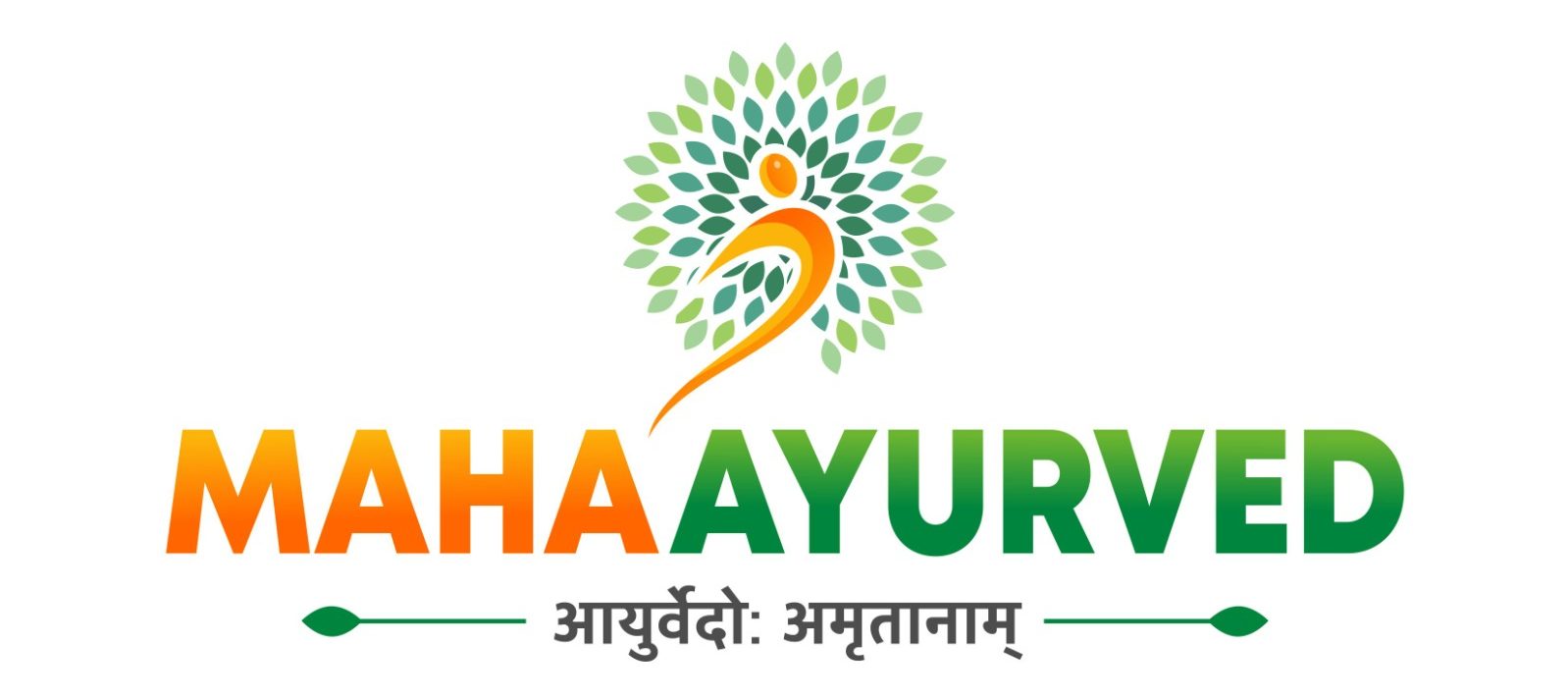

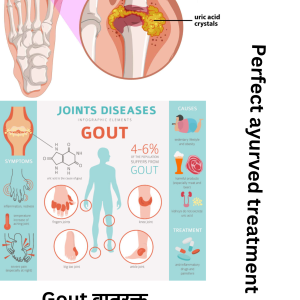
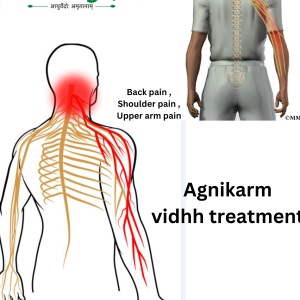
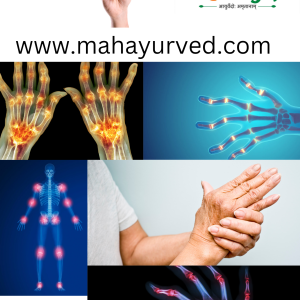
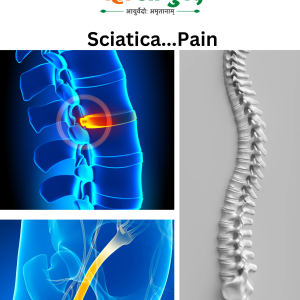
Reviews
There are no reviews yet.